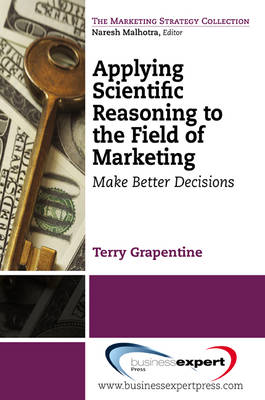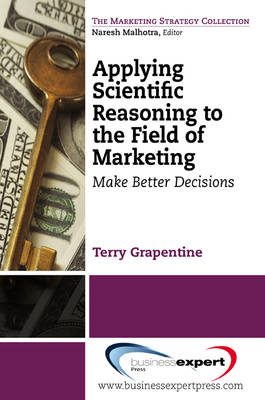
- Retrait gratuit dans votre magasin Club
- 7.000.000 titres dans notre catalogue
- Payer en toute sécurité
- Toujours un magasin près de chez vous
- Retrait gratuit dans votre magasin Club
- 7.000.000 titres dans notre catalogue
- Payer en toute sécurité
- Toujours un magasin près de chez vous
Applying Scientific Reasoning to the Field of Marketing
Make Better Decisions
Terry Grapentine
Livre broché | Anglais
30,95 €
+ 61 points
Description
Marketing decisions often misfire when driven more by beliefs than by knowledge. This book will guide you on how to differentiate between the two and to think more clearly and correctly when making those decisions, thereby increasing organizational success. The author has based this book on the fields of epistemology-the study of how knowledge is created-and the philosophy of science- the study of what it means for a science to be called a science. The motivation behind the book is quite simple: Given that science is so successful, why shouldn't marketers borrow thinking and reasoning skills from science and apply them to marketing? Indeed, why not? The book details the groundwork for learning how to apply scientific reasoning to the field of marketing, such as some basic and important definitions ("What is a belief?" "What is knowledge?"), and identifies barriers to scientific reasoning, giving an example from the Dow Chemical Company and just how Dow uses critical thinking and reasoning skills to make more effective marketing and business decisions. You'll also learn some real "thinking tools" you will need to apply scientific reasoning to solving your marketing problems. It introduces topics relating to attributes versus constructs, the meaning of causation, the relationship between coherence and justified beliefs, the importance of logic to sound reasoning, and the avoidance of logical fallacies in making sound recommendations. The book concludes by giving you direction to further improve your ability to apply scientific reasoning to solving marketing problems.
Spécifications
Parties prenantes
- Auteur(s) :
- Editeur:
Contenu
- Nombre de pages :
- 260
- Langue:
- Anglais
Caractéristiques
- EAN:
- 9781606493670
- Date de parution :
- 03-10-12
- Format:
- Livre broché
- Format numérique:
- Trade paperback (VS)
- Dimensions :
- 152 mm x 229 mm
- Poids :
- 353 g







